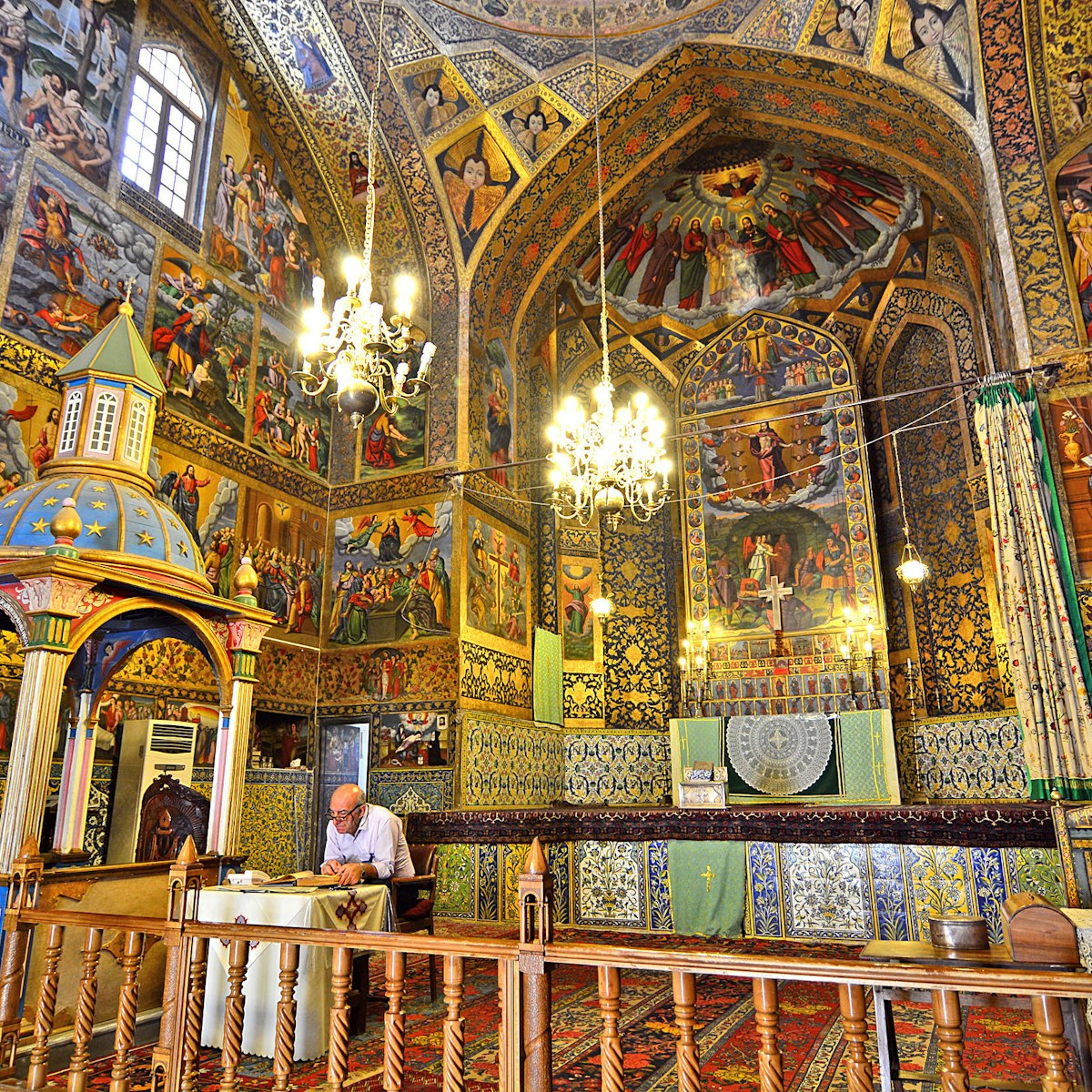Hemmed on four sides by architectural gems and embracing the formal fountains and gardens at its centre, this wondrous space is a spectacle in its own right. It was laid out in 1602 under the reign of the Safavid ruler, Shah Abbas the Great, to signal the importance of Esfahan as a capital of a powerful empire. Cross the square on a clear winter's day and it's a hard heart that isn't entranced by its beauty.
At 512m long and 163m wide, Naqsh-e Jahan is one of the largest squares in the world, earning a listing as a Unesco World Heritage site. The name means ‘pattern of the world’ and it was designed to showcase the finest jewels of the Safavid empire – the incomparable Masjed-e Shah, the elegant Masjed-e Sheikh Lotfollah and the lavishly decorated Kakh-e Ali Qapu and Qeysarieh Portal. It is has changed little since it was built, and at each end the goal posts used in regular polo games 400 years ago are still in place (these polo matches are depicted on miniatures for sale around the square). The only modern additions are the fountains, which were added by the Pahlavis, and the souvenir and craft shops, which occupy the spaces on either side of the arched arcades.
Resisting grumbles from shop owners who occupy the surrounding arcades, recent civic administrations have restored the square to its full glory by making the entire space a pedestrian zone. Horse-drawn carriages, a few electric carts and Shank's pony are now the only transport in the square allowing visitors to enjoy the majesty of the view untroubled by traffic.
The square is at its best in late afternoon when the blue-tiled minarets and domes are lit up by the last rays of the sun and the mountains beyond turn red. This is the time when local families congregate for a promenade around the perimeter, the fountains are turned on and the light softens, illuminating the truly splendid architecture.





